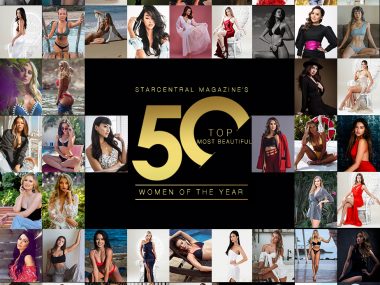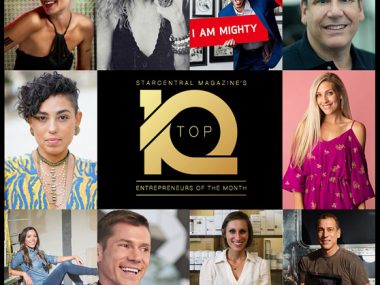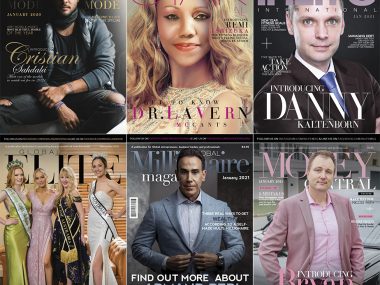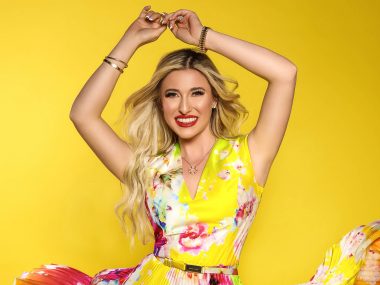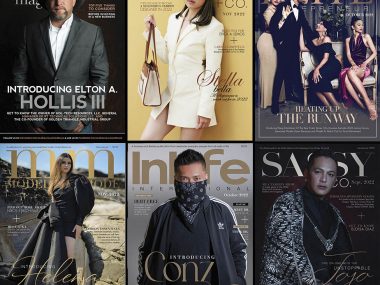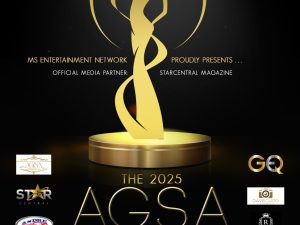In the heart of the entertainment industry, where fame often takes center stage, Liana Cornell has carved out a unique path that intertwines her passion for performance with a resounding commitment to environmental advocacy. As the daughter of renowned producer and writer John Cornell, the creative force behind Crocodile Dundee, and acclaimed actress Delvene Delaney, Liana’s destiny in the entertainment realm seemed preordained. However, her trajectory took an unexpected turn when she embraced her role as an advocate for the planet and those who lack a voice.
With a repertoire of supporting roles across various television programs, Liana Cornell’s breakthrough came in the form of the hit historical drama Britannia, available on Sky and Amazon Prime. In the series, her portrayal of the character Ania not only showcased her acting prowess but also thrust her into the spotlight as a leading figure. Ania’s prominence in the show mirrored Liana’s rising influence in the realm of environmental conservation.
Beyond the glitz and glamour, Liana’s true passion lies in fostering positive change. This passion led her to channel her industry earnings into an impactful philanthropic endeavor—an ongoing docuseries titled Refugia. A labor of love, Refugia serves as a platform to spotlight the commendable efforts of individuals around the globe who are dedicated to the betterment of our planet.
At its core, Refugia is more than a documentary series; it’s a call to action. The first season’s focus on the east coast of Australia underscores critical topics such as regenerative agriculture, sustainable living, and forest reclamation. These subjects, meticulously explored through the lens of Refugia, strive to awaken humanity to its profound role as custodians of the Earth.
What sets Refugia apart is not only its purpose but also its delivery. Released through the innovative platform WaterBear, the series pioneers an interactive approach to storytelling. Viewers are empowered to take direct action on the issues they witness, blurring the lines between entertainment and activism.
The impact of Refugia has been nothing short of remarkable. The series has garnered widespread acclaim, garnering nominations and awards across various categories in esteemed film festivals across Australia and the UK. Most recently, Refugia claimed three prestigious awards at the Scottish Film Festival, solidifying its status as a powerful voice for change.
Liana Cornell’s journey stands as a testament to the potential for positive transformation within the entertainment industry. Her choice to utilize her platform and earnings for the greater good exemplifies the fusion of talent and purpose, spotlighting the vital role individuals can play in addressing the pressing environmental challenges of our time.
In an exclusive interview with StarCentral Magazine, Liana opens up about her remarkable journey in the entertainment industry—an odyssey that has taken her from the glitzy stages of Hollywood to the forefront of environmental activism.
Can you share with us the inspiration behind creating the docuseries “Refugia” and the driving force behind highlighting environmental and philanthropic work? During my teens, I did a bit of door-knocking for different organisations, so I made some lifelong connections to people doing super cool things for the planet. As I got into my twenties and moved to LA, I started to connect wealthy individuals to organisations between which I knew there’d be symbiosis. I found that people’s biggest fear around donating money was that they didn’t know how it was going to be spent or if it was being spent correctly. Often, the volunteers working for these organisations barely had time for even a good nap, let alone branding and capturing all the amazing work they do. So I started to dream up an idea where I could pull back the curtain on what was actually happening in order to grow trust and understanding around all the amazing work these good people are doing.I also wanted it to be a healing balm for those experiencing eco-anxiety. There’s an overflow of negative news, and I wanted to remind people that every single day people are working tirelessly to make our planet a healthier, safer place for us all.
 What led you to combine your acting career with your passion for environmental activism, and how do you find balance between the two?I originally studied to be a biologist. I have always loved the scientific realms and was home-schooled by an incredible woman for a good portion of my childhood who taught every subject through art. It made me see the world through the most fantastic lens and gave me an understanding of the potency of media as medicine – that the true role of art was to hold the mirror up to life and encourage us to question and reshape the world together. I ended up dropping out of university because I was the only person in a very large class that was against animal testing. I wanted to find a way to give nature a voice and so pondered what else I could do – acting was already in my blood so it made sense to pursue it, plus I really do love performing. I hadn’t really thought I could make a career out of it, and everyone warned me against becoming an actor, but I also had been bitten by the proverbial acting bug by that point and that’s a bite that lasts for a lifetime. I am deeply grateful for the heartbeat of desire I had for using my voice to protect the planet, as it’s given me a really clear objective within this industry. Could you tell us more about the first season of “Refugia” and its focus on the east coast of Australia? What are some of the important topics covered in the series? I grew up on the east coast of Australia, so most of my connections were there. I had dreamed of making it worldwide but then that didn’t make much sense to me, as it didn’t feel like a very eco approach. We made the filming process into a road trip so it would have less of an impact environmentally and could be easily offset.I think the topics of deforestation, the stealing of the country from Original Landholders, and the effects of creating an imbalance in the world through our collective action (fires, floods, destruction of habitat, etc.) are important aspects of the series. The most pivotal topic for me, though is looking at the incredible work being done every day by the amazing people showcased in Refugia – they are giving their lives for a better planet for all. I want people to watch these people and think “How amazing is that, I could do that!” and be inspired. How do you hope “Refugia” will impact viewers and inspire them to take action towards environmental conservation and sustainable living?I would love it if Refugia encouraged viewers to find their own way of helping the planet. The series invites individuals to start where they can take one step, and then when they are able to, take another. It might seem small, but on a mass scale, we can change the world together this way. It’s important to establish your limits and capacity to affect change, though. I believe it’s important not to beat yourself up or feel guilty. Doing that doesn’t get us very far as it stems from an unsustainable source and often leads to burnout.
What led you to combine your acting career with your passion for environmental activism, and how do you find balance between the two?I originally studied to be a biologist. I have always loved the scientific realms and was home-schooled by an incredible woman for a good portion of my childhood who taught every subject through art. It made me see the world through the most fantastic lens and gave me an understanding of the potency of media as medicine – that the true role of art was to hold the mirror up to life and encourage us to question and reshape the world together. I ended up dropping out of university because I was the only person in a very large class that was against animal testing. I wanted to find a way to give nature a voice and so pondered what else I could do – acting was already in my blood so it made sense to pursue it, plus I really do love performing. I hadn’t really thought I could make a career out of it, and everyone warned me against becoming an actor, but I also had been bitten by the proverbial acting bug by that point and that’s a bite that lasts for a lifetime. I am deeply grateful for the heartbeat of desire I had for using my voice to protect the planet, as it’s given me a really clear objective within this industry. Could you tell us more about the first season of “Refugia” and its focus on the east coast of Australia? What are some of the important topics covered in the series? I grew up on the east coast of Australia, so most of my connections were there. I had dreamed of making it worldwide but then that didn’t make much sense to me, as it didn’t feel like a very eco approach. We made the filming process into a road trip so it would have less of an impact environmentally and could be easily offset.I think the topics of deforestation, the stealing of the country from Original Landholders, and the effects of creating an imbalance in the world through our collective action (fires, floods, destruction of habitat, etc.) are important aspects of the series. The most pivotal topic for me, though is looking at the incredible work being done every day by the amazing people showcased in Refugia – they are giving their lives for a better planet for all. I want people to watch these people and think “How amazing is that, I could do that!” and be inspired. How do you hope “Refugia” will impact viewers and inspire them to take action towards environmental conservation and sustainable living?I would love it if Refugia encouraged viewers to find their own way of helping the planet. The series invites individuals to start where they can take one step, and then when they are able to, take another. It might seem small, but on a mass scale, we can change the world together this way. It’s important to establish your limits and capacity to affect change, though. I believe it’s important not to beat yourself up or feel guilty. Doing that doesn’t get us very far as it stems from an unsustainable source and often leads to burnout.
Also, a lot of changes that need to be made must come from the people who are in charge; uniting communities with a positive focus to give a clear and collective voice is an important way to create immense change. More often than not, there’s a level of privilege to being fully eco that isn’t attainable for everyone – so what we want is to do our best, make it better each day, and focus our energy on demanding change from the top-down, not the bottom up. We, the people, have the power, and it’s time to remember just how powerful we can be when united. As both a producer and presenter of “Refugia,” what challenges have you encountered during the production process, and how have you overcome them?Oof! Too many! Refugia was also the first film I ever made, and I did almost all the pre-production by myself with a crazy hand injury from a knife I had been using in an audition. It wasn’t an easy time, and I also think sometimes we get these brilliant tests at pivotal moments in our lives to test our mettle. Luckily, I had some amazing people swoop in and help me out mid-production, and my incredible editor, Timothy Hadwen, who is my absolute personal hero.I was only the presenter in order to save money and it made sense as I was a free asset with the correct training. It was definitely trippy at points watching that much of myself on screen, but I ended up just pretending I was someone I had hired. I tried to be as objective as possible so my ego wouldn’t get caught up in any of it – I had enough on my plate without that! In your opinion, what is the role of storytelling and media in raising awareness about environmental issues and encouraging positive change?I think it’s the ultimate role of media and storytelling. The original storytellers were the medicine keepers, shamans, and elders – stories, and fables are invented to give us wisdom and guidance. These stories have stayed alive throughout human history for a reason because they often hold ultimate truths. Mostly, it seems, we have lost touch with the true purpose of telling these stories. Modern stories and storytelling seem to encourage us to tap out and not be as present, which is fine – I love zoning out on the couch, but I don’t believe it should be the majority of what we have available – or it raises up individuals who are maybe not the best people to be placed on communal pedestals. We become what we consume. I believe people are hungry for more reflective stories and narratives, we desire to change at such a deep level, and I think that’s why there has been such a positive response to the series – it makes people feel a renewed sense of hope, and it reminds them they are not alone. How do you personally incorporate sustainable living practices into your daily life, and what advice do you have for individuals who want to make a positive environmental impact? I currently live on an off-grid small-holding and am aiming to grow most of my own food. I am not perfect, but I aim to be as good as I can be in whatever circumstances I am in. That’s all we can do – our best. Finding what you’re passionate about and connecting to others within those fields often leads to great ideas that can be acted upon as a community. If that’s less of your thing then just starting with whatever it is that you can change is a perfect place to begin, and then to keep transforming your life to be more in symbiosis with the planet and each other is a great next phase. Sharing information, not just online but face to face, and finding gentle ways to remind each other of better paths, rather than through anger, also feels the best way forward for me. I think people switch off when it’s a guilt-based or fear-based view of things. I think we actually need to be reminded of the great amount of goodness taking place and to join forces. To fill up our cups so we can share from the overflow.
 Can you share any memorable experiences or encounters you’ve had while filming “Refugia” that have left a lasting impact on you?
Can you share any memorable experiences or encounters you’ve had while filming “Refugia” that have left a lasting impact on you?
There were so many; I think spending time on K’Gari Island with Butchulla Elder, Joey, will stay with me until my last breath. The land responds differently to those who are Caretakers of it. Joey has this whale song he does on didgeridoo, and one morning we woke up for sunrise, and he started to play it on the beach. As the rays of dawn seeped across the ocean, a pod of humpbacks swam into view, called in by Joey’s special song. To remember that we can bridge the gap between species and still sing to each other is a beautiful thing indeed.What are your future plans and aspirations for “Refugia”? Are there any specific regions or topics you would like to explore in upcoming seasons?I mean, they are a lot of dreams for that show; I’d love to do a sailing version along the coastline of the Americas. I’m also really curious about visiting and driving along the great green belt of Africa, as there’s so much goodness being done there as well. Who knows, I’m happy to see what arises now and who I might connect to further. What message would you like to convey to viewers and the broader audience about the importance of being custodians of our planet and taking action to protect the environment?I think the most important first step is to know whose land you’re currently standing on, no matter where you are in the world. Learn the history, and often through that, you will find ways of connecting more deeply to the country. Original Landholders worldwide have had the custodianship figured out for quite a while now. I think practicing active listening to land and nature is a potent way to find out what exactly what you are meant to be doing to play your part. It sounds hippy and ungrounded, but sitting in silence and listening to the thoughts that arise will often lead to deep moments of wisdom I otherwise would never have come across. There is much to be remembered.
 Can you tell us about your new Alt-pop music project, færy, and what inspired you to embark on this musical journey? I’ve sung songs since I was a little girl. I was in the national choir and also a couple of bands growing up. Then I had a bit of a traumatic onstage experience and stopped singing for around a decade. Drama School forced me back into singing, and then I started to experiment just at home by myself. It wasn’t until I was living in London and had had a couple of close friends pass away that I realised I just had to do it. Life was too short, and I didn’t want to have all that desire living unseen underneath my left lung. I had to let it out. I also have trained in different healing modalities and wanted to create something that would encourage people to connect to their own healing path more deeply, and I wanted it to sound different. I wanted it to be fun and sexy and also offer medicinal aspects, so I intertwine frequencies and tones into the music to achieve this and everyone who has listened to it so far has said they felt incredible after listening to the full album. Your debut single, “blýth,” is set to release soon. Can you give us a glimpse into the meaning and message behind the song? Blýth means wolf in Cornish, and I wanted this first song to be a call to your inner wild. We hold a lot of trauma in our bodies and don’t often get the chance to release it, so this song focuses on getting you up and moving, in whatever capacity you feel called, to shift anything that is stagnant and ready to be released. It’s a song to have a good dance and howl to, and it is the first stage in the healing process of the album.What was the creative process like recording “blýth” in Cornwall with writer/producer Will Vaughan? How did the collaboration contribute to the overall sound and feel of the track?Will is one of my favourite people on the planet and so exceptionally talented it can’t truly be captured in words. I see him as my musical soul mate, and we’re such a beautiful balance to each other. We come from such different fields and so are able to create a lot of magic together. Co-producing was always pretty seamless as we’re usually on the same page and have a lot of creative intuition together. I hope to continue making music with him for the rest of my life.
Can you tell us about your new Alt-pop music project, færy, and what inspired you to embark on this musical journey? I’ve sung songs since I was a little girl. I was in the national choir and also a couple of bands growing up. Then I had a bit of a traumatic onstage experience and stopped singing for around a decade. Drama School forced me back into singing, and then I started to experiment just at home by myself. It wasn’t until I was living in London and had had a couple of close friends pass away that I realised I just had to do it. Life was too short, and I didn’t want to have all that desire living unseen underneath my left lung. I had to let it out. I also have trained in different healing modalities and wanted to create something that would encourage people to connect to their own healing path more deeply, and I wanted it to sound different. I wanted it to be fun and sexy and also offer medicinal aspects, so I intertwine frequencies and tones into the music to achieve this and everyone who has listened to it so far has said they felt incredible after listening to the full album. Your debut single, “blýth,” is set to release soon. Can you give us a glimpse into the meaning and message behind the song? Blýth means wolf in Cornish, and I wanted this first song to be a call to your inner wild. We hold a lot of trauma in our bodies and don’t often get the chance to release it, so this song focuses on getting you up and moving, in whatever capacity you feel called, to shift anything that is stagnant and ready to be released. It’s a song to have a good dance and howl to, and it is the first stage in the healing process of the album.What was the creative process like recording “blýth” in Cornwall with writer/producer Will Vaughan? How did the collaboration contribute to the overall sound and feel of the track?Will is one of my favourite people on the planet and so exceptionally talented it can’t truly be captured in words. I see him as my musical soul mate, and we’re such a beautiful balance to each other. We come from such different fields and so are able to create a lot of magic together. Co-producing was always pretty seamless as we’re usually on the same page and have a lot of creative intuition together. I hope to continue making music with him for the rest of my life.
Image Credits:
Photographer – Max D’orsogna @maxdorsogna
Styling – Artist’s own wardrobe
Hair & Makeup – Phoebe Fever @phoebefever
Art Direction, Styling & Production – Caroline Blanco @transcendent_birth_and_being
Production Assistant – Pepe Lees-Bennewart @pepspov
Thank you – Delvene Delaney & Kai Wilder


